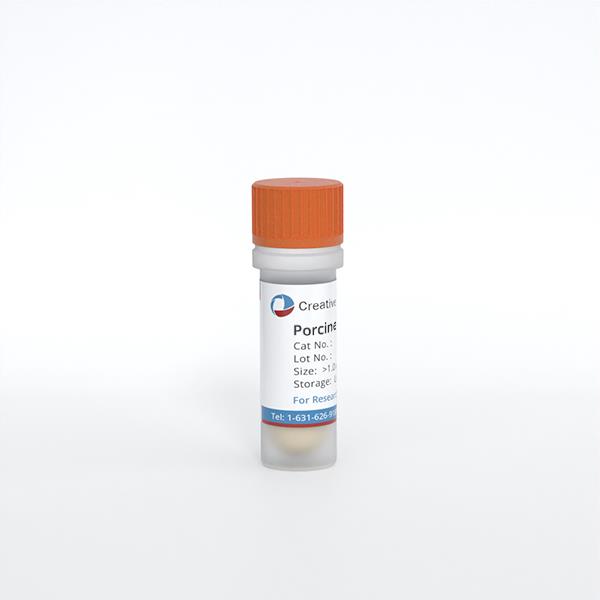Description
Porcine Cardiac Microvascular Endothelial Cells from Creative Bioarray are isolated from heart tissue of porcine. Porcine Cardiac Microvascular Endothelial Cells are grown in T25 tissue culture flasks pre-coated with gelatin-based coating solution for 2 min and incubated in Creative Bioarray’ Culture Complete Growth Medium generally for 3-7 days. Cultures are then expanded. Prior to shipping, cells are detached from flasks and immediately cryo-preserved in vials. Each vial contains at least 0.5x10^6 cells per ml and are delivered frozen. The method we use to isolate endothelial cells was developed based on a combination of established and our proprietary methods. These cells are pre-coated with PECAM-1 antibody, following the application of magnetic pre-coated with secondary antibody.
Cell Type
Endothelial Cell; Microvascular Cell
Quality Control
Porcine Cardiac Microvascular Endothelial Cells are tested for uptake of Dil-Ac-LDL (Catalog No. L-35353, Invitrogen), a functional marker for endothelial cells. Porcine Cardiac Microvascular Endothelial Cells are negative for bacteria, yeast, fungi and mycoplasma. Cells can be expanded for 3-5 passages at a split ratio of 1:2 under the cell culture conditions specified by Creative Bioarray. Repeated freezing and thawing of cells is not recommended.
Storage and Shipping
Creative Bioarray ships frozen cells on dry ice. On receipt, immediately transfer frozen cells to liquid nitrogen (-180 °C) until ready for experimental use. Live cell shipment is also available on request.
Never can primary cells be kept at -20 °C.
Citation Guidance
If you use this products in your scientific publication, it should be cited in the publication as: Creative Bioarray cat no.
If your paper has been published, please click here to submit the PubMed ID of your paper to get a coupon.
What is the grade of DMSO and the method of sterile filtration?
The DMSO grade used for cryopreservation must be Tissue culture grade DMSO (e.g. Sigma D2650), which is sterile in itself. After opening the bottle for the first time, a small amount should be immediately dispensed into sterile test tubes and stored at 4°C to avoid repeated freezing and thawing of DMSO, which may cause the release of harmful substances and reduce the chance of contamination. To filter DMSO, DMSO-resistant Nylon membranes should be used.


